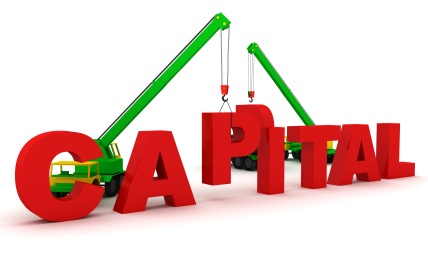It’s rare to come by an entrepreneur who’s not looking for money. The reasons could be to start a business, buy machinery, increase stock or pay off a supplier – the quest hardly ever seems to end. I’ve heard this statement many times ‘If only I could get x amount, then my business will be OK’. Sound familiar? For the majority of us – this statement cannot be further from the truth.
Let me tell you a story about John. John always wanted to open up a hardware store but never had enough capital to do it. After many years of hustling; he finally managed to raise enough cash to open his store. John was elated the first day he sat in his store – “I can’t believe my dream has come true” he thought to himself, “after all these years I’ve finally done it!”
The first few days were slow, one or two people popped into the shop but they never bought anything. The next week a customer bought a few supplies for around Ksh 250 and business was quiet again soon after that. John started to worry, how will I afford to pay rent next month? I haven’t even finished off paying my suppliers, what am I going to do? The next quest for capital came, he ended up borrowing cash to keep his business afloat and pay suppliers.
John began to realize that he needed to do something to increase customer knowledge of his shop. He needed to market his business. The more you market – the more it costs, the next quest for capital came. Needless to say, two years down the line the quest for capital has not yet ended.
If you’re an entrepreneur and this sounds a lot like your story – you’re not alone, trust me! This seems to be the rite of passage for most businesses. There’s nothing wrong with looking for cash for a business, however it’s better if you are looking for cash to grow the business rather than to keep it afloat. This is the main reason why some businesses don’t make it – mainly because the capital ran out before the business found its feet.
There are ways an entrepreneur can mitigate against the risk of running out of capital within the first year. Before you start, you need to budget for more than what is needed to start the business; you need to budget for rent and other fixed costs during the first 6-12 months of the business. You also need to set aside a marketing budget for the same period. Marketing is critical and is the oxygen required for your business to grow.
The reason it’s important to plan for the first 6-12 months is because you don’t know how long it will take for your monthly revenue to cover the costs of the business. It takes time for customers to warm up to your product – even if it is a great product. All new products need to go through the product awareness phase.
It’s difficult to raise capital through banks or investors before you start. If your business is not generating any income, it’s a hard sell – it will require someone who has a lot of faith in you and most of the time this is friends and family. If you have a business that’s generating not just income but profit then this is an easier conversation to have with an investor or lender. However, I’d advice to you to talk to a bank before giving away shares of your business to an outsider, especially if your debt to equity ratio is low.
So what happens to those who have a dream but no capital to realize it? Don’t give up! If no one wants to support you, think outside the box. How else can you make money? What gift or talent do you have and how can you turn that into cash? If you’re an entrepreneur, chances are you’re already pretty good at thinking outside the box. Look at your situation the way you would a simultaneous equation (remember algebra?) – There’s always a solution to the problem. You just need to be smart enough to figure it out.








